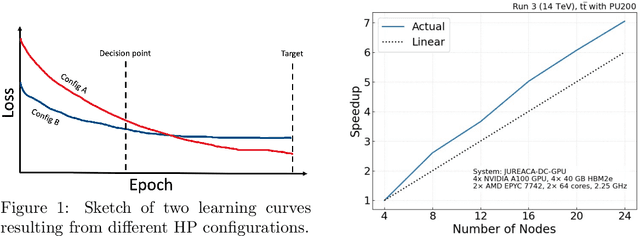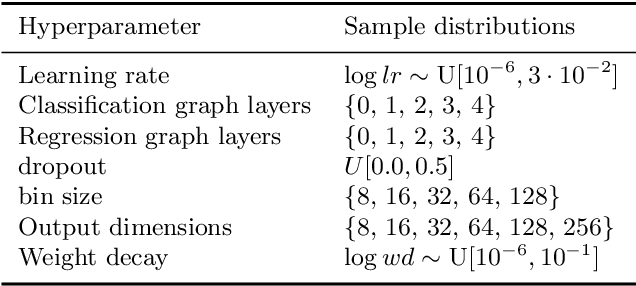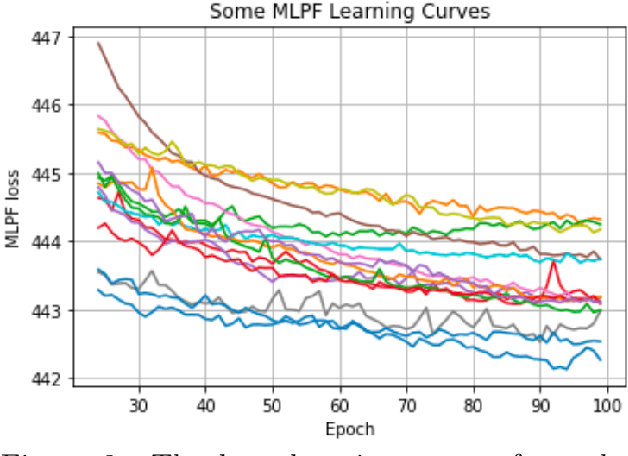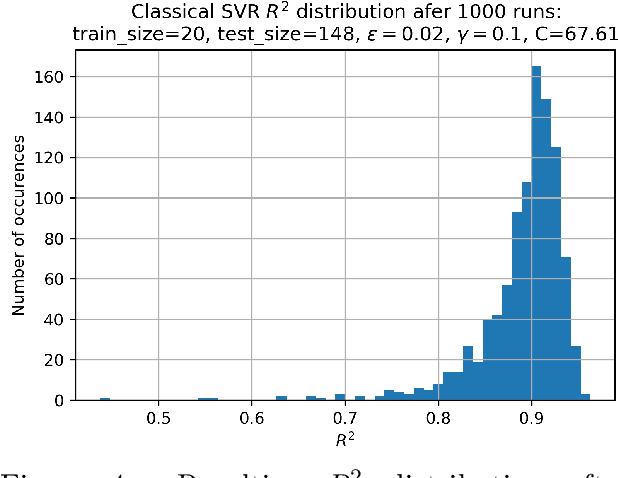David Southwick
Scalable neural network models and terascale datasets for particle-flow reconstruction
Sep 13, 2023Abstract:We study scalable machine learning models for full event reconstruction in high-energy electron-positron collisions based on a highly granular detector simulation. Particle-flow (PF) reconstruction can be formulated as a supervised learning task using tracks and calorimeter clusters or hits. We compare a graph neural network and kernel-based transformer and demonstrate that both avoid quadratic memory allocation and computational cost while achieving realistic PF reconstruction. We show that hyperparameter tuning on a supercomputer significantly improves the physics performance of the models. We also demonstrate that the resulting model is highly portable across hardware processors, supporting Nvidia, AMD, and Intel Habana cards. Finally, we demonstrate that the model can be trained on highly granular inputs consisting of tracks and calorimeter hits, resulting in a competitive physics performance with the baseline. Datasets and software to reproduce the studies are published following the findable, accessible, interoperable, and reusable (FAIR) principles.
Hyperparameter optimization, quantum-assisted model performance prediction, and benchmarking of AI-based High Energy Physics workloads using HPC
Mar 27, 2023



Abstract:Training and Hyperparameter Optimization (HPO) of deep learning-based AI models are often compute resource intensive and calls for the use of large-scale distributed resources as well as scalable and resource efficient hyperparameter search algorithms. This work studies the potential of using model performance prediction to aid the HPO process carried out on High Performance Computing systems. In addition, a quantum annealer is used to train the performance predictor and a method is proposed to overcome some of the problems derived from the current limitations in quantum systems as well as to increase the stability of solutions. This allows for achieving results on a quantum machine comparable to those obtained on a classical machine, showing how quantum computers could be integrated within classical machine learning tuning pipelines. Furthermore, results are presented from the development of a containerized benchmark based on an AI-model for collision event reconstruction that allows us to compare and assess the suitability of different hardware accelerators for training deep neural networks.
 Add to Chrome
Add to Chrome Add to Firefox
Add to Firefox Add to Edge
Add to Edge